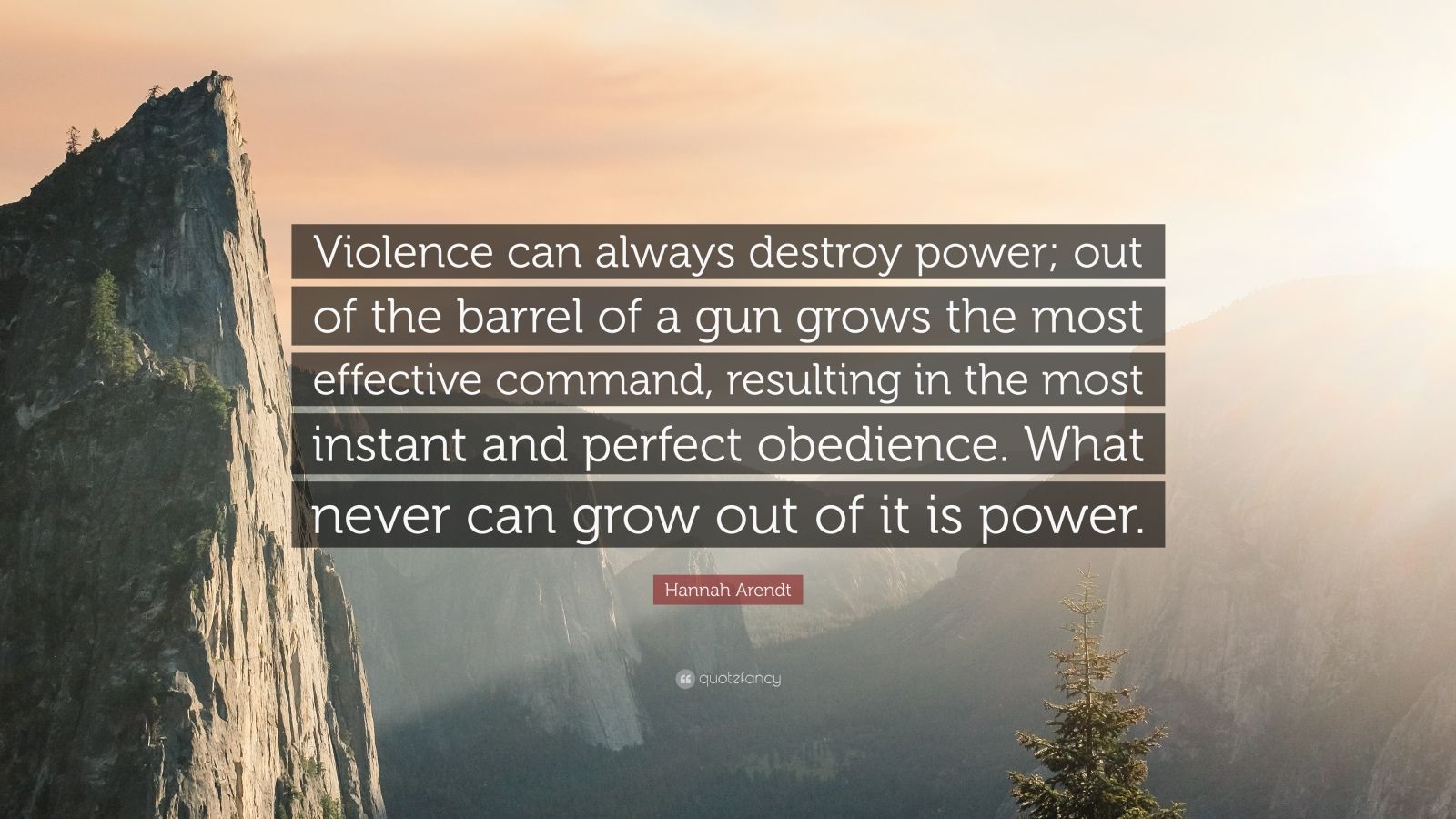

Although some recent trends in warfare and communication methods question aspects of ‘On Violence’, in particular regarding questions of influences on behaviour, Arendt’s conclusions regarding bureaucracy and responsibility for actions need only minor adjustments to be applicable to the political and economic turbulence of recent years, and to some of the underlying popular frustrations regarding the perceived lack of political accountability in many countries. The nature or form of a political entity can clearly affect the timing of the impact of power and violence upon each other. Power and violence, as defined by Arendt in ‘On Violence’, continue to have an adversely relative relationship, albeit that the relationship between them does not directly correlate.

By Matthew Edwards 25 June 2021 ABSTRACT: While Hannah Arendt’s ‘On Violence’ is heavily influenced by the events of its time – amongst others, the Cold War, the 1968 student uprisings and the Vietnam War – key elements of the conceptual framework forming her conclusions as to the nature of violence and its relationship with power remain valid.


 0 kommentar(er)
0 kommentar(er)
